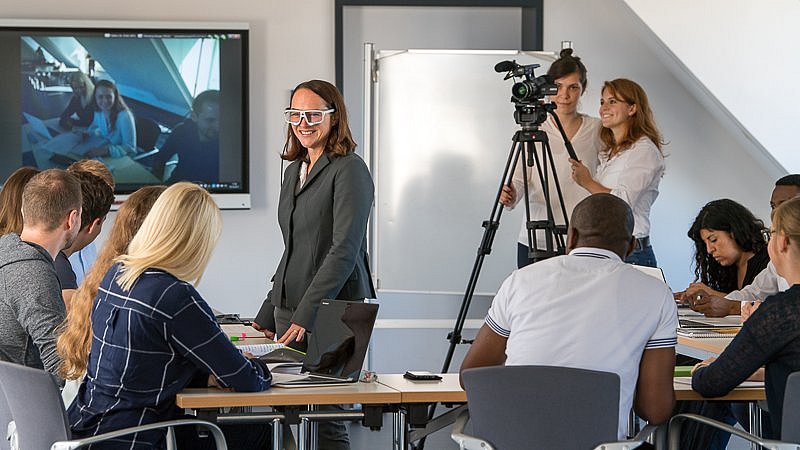DFG funds research on education and mobility
Two new Collaborative Research Centers at TUM

The DFG's Collaborative Research Centers are among the most important research funding programs in Germany. They enable ambitious, interdisciplinary and long-term research projects. Collaborative Research Centers whose partners cooperate on a supra-regional level are called Transregios. TUM was successful twice in the current selection round:
SFB/Transregio “Data-driven agile planning for responsible mobility”
How can the forecasting and management of traffic flows be improved? And how can the various interests of traffic participants be taken into account in a more balanced way than before? The AgiMo Collaborative Research Center aims to develop new methods for agile mobility planning using a comprehensive approach based on data and computer models. New criteria for responsible mobility based on the so-called 4F principles - Function, Form, Fairness and Forever - are to be defined and applied. On this basis, the researchers want to develop a digital twin in order to make data and models available open source. They also want to investigate how all relevant stakeholders can participate in the design of evidence-based future scenarios. To this end, the technical and social sciences are working closely together at AgiMo.
- Applicant universities: TU Dresden and TUM
- Responsible at TUM: co-spokesperson Prof. Dr. Klaus Bogenberger, Chair of Traffic Engineering and Control, and Prof. Dr. Allister Loder, Professorship of Mobility Policy
- Spokesperson: Prof. Dr. Regine Gerike (TU Dresden)
- Partner institutions: TU Berlin, TU Braunschweig and German Aerospace Centert (DLR)
SFB/Transregio “Simulation-based learning in higher education: Advancing research on process diagnostics and personalized interventions (SHARP)”
In many professions, such as medicine and school teaching, increasingly complex analytical and communication skills are expected. Students could be better prepared for these requirements with simulations training them in practical situations with virtual patients or simulated pupils. The SHARP Collaborative Research Center will investigate how such simulations can be designed and applied. The researchers want to use artificial intelligence to adapt simulations to the respective level of competence and different needs. They also want to investigate what skills university lecturers need to be able to implement personalized, simulation-based learning effectively in degree courses. SHARP is the first Collaborative Research Center in educational research and brings together the disciplines of psychology, educational science, computer science, mathematics, medicine, biology, chemistry and physics.
- Applicant universities: LMU and TUM
- Responsible at TUM: co-spokesperson Prof. Dr. Tina Seidel, Friedl Schöller Endowed Chair for Educational Psychology
- Spokesperson: Prof. Dr. Frank Fischer (LMU)
- Partner institutions: University of Augsburg, Leibniz Supercomputing Centre
The German Research Foundation has established a total of 13 new Collaborative Research Centers. From October 2025, they will initially be funded for three years and nine months with a total of around 177 million euros.
Technical University of Munich
Corporate Communications Center
- Klaus Becker / Moritz Müller
- klaus.becker@tum.de
- presse@tum.de
- Teamwebsite